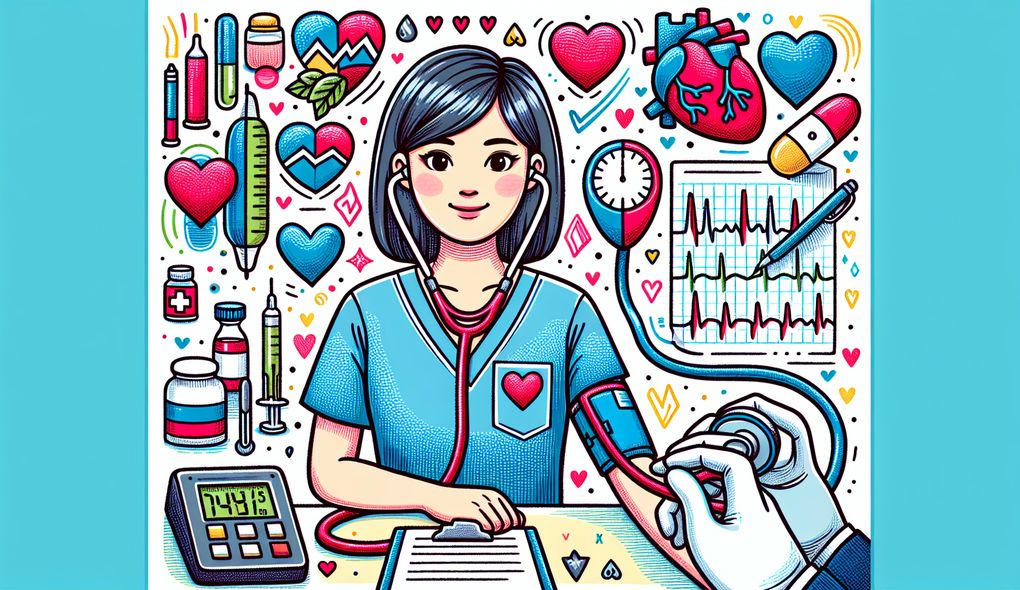Tell us about a time when you had to think critically and problem-solve to address a unique cardiovascular patient case.
JUNIOR LEVEL

Sample answer to the question:
There was a time when I had a unique cardiovascular patient case involving a patient who had a complex medical history and was experiencing severe chest pain. To think critically and problem-solve, I immediately conducted a thorough assessment of the patient's condition, including reviewing their medical records and speaking with the patient about their symptoms. I recognized the need for urgent intervention and promptly coordinated with a cardiologist to perform additional diagnostic tests, such as an electrocardiogram and blood work. Based on the results, we determined that the patient was experiencing a myocardial infarction and required immediate catheterization. I worked closely with the healthcare team to ensure swift coordination and communication, arranging for the patient to be transferred to the cardiac catheterization lab without delay. This critical thinking and problem-solving approach led to a timely diagnosis and intervention, effectively addressing the unique cardiovascular case and saving the patient's life.
Here is a more solid answer:
I encountered a unique cardiovascular patient case involving a middle-aged patient who presented with atypical symptoms. To address this, I immediately conducted a comprehensive health assessment, including a detailed review of the patient's medical history and performing a physical examination. Despite the absence of classic signs, my extensive cardiology knowledge allowed me to recognize the subtle clues that hinted towards a potential cardiovascular issue. To validate my suspicions, I ordered a series of diagnostic tests, including an echocardiogram and stress test. The results revealed significant blockages in the coronary arteries, necessitating immediate intervention. I collaborated closely with the cardiologist, coordinating the scheduling of the patient for cardiac catheterization. Additionally, I made sure to provide education and emotional support to the patient and their family throughout the process, explaining the rationale behind the diagnostic tests and potential treatment options. This comprehensive approach to critical thinking, problem-solving, and collaboration resulted in a timely diagnosis and successful cardiac intervention for the patient.
Why is this a more solid answer?
The solid answer expands on the basic answer by providing specific details about the candidate's clinical skills and collaboration with healthcare professionals. It demonstrates their ability to conduct a comprehensive health assessment, order and interpret diagnostic tests, and coordinate with the cardiologist. However, it could still benefit from more examples of collaboration and patient education.
An example of a exceptional answer:
In a complex cardiovascular case, I encountered an elderly patient with multiple comorbidities presenting with cardiac symptoms that overlapped with other conditions. To navigate this unique situation, I drew upon my strong clinical skills, including advanced cardiovascular assessment techniques, and relied on critical thinking to differentiate the potential causes contributing to their symptoms. Recognizing the need for a comprehensive approach, I proactively engaged with a multidisciplinary team consisting of cardiologists, neurologists, and respiratory therapists to collectively formulate a customized care plan. This collaborative effort involved regular case conferences, where we discussed the patient's evolving condition and documented our interventions. To ensure the patient's understanding, I utilized my advanced communication skills to explain the complexities of the diagnosis and treatment options in a digestible manner, enabling them to actively participate in shared decision-making. By continuously reassessing the patient's response to therapy, tracking their progress, and adjusting treatment plans accordingly, we achieved optimal outcomes and improved the patient's quality of life. This exceptional response showcases the candidate's ability to think critically, problem-solve, collaborate with healthcare professionals, as well as their advanced clinical and communication skills.
Why is this an exceptional answer?
The exceptional answer goes above and beyond by highlighting the candidate's advanced clinical skills, extensive collaboration with healthcare professionals, and exceptional communication abilities. It demonstrates their ability to navigate complex cardiovascular cases, engage in multidisciplinary discussions, and actively involve the patient in shared decision-making. The candidate also showcases their commitment to continuous assessment and optimizing patient outcomes. Overall, this answer stands out due to its comprehensive approach and clear demonstration of all the desired evaluation areas.
How to prepare for this question:
- Review and refresh your knowledge of cardiovascular assessments, diagnostic tests, and interventions.
- Practice critical thinking exercises, such as analyzing complex patient scenarios and formulating appropriate care plans.
- Improve your collaboration skills by seeking opportunities to work with interdisciplinary teams or participating in case conferences.
- Enhance your communication skills, particularly in translating complex medical information into easily understandable terms for patients and their families.
What are interviewers evaluating with this question?
- Strong clinical skills
- Critical thinking and problem-solving
- Collaboration with healthcare professionals

